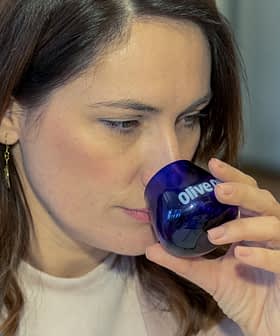E.U. Chief Promises Strategic Dialogue with Farmers

The president of the European Commission, Ursula von der Leyen, has announced that the European Union will embark on a dialogue about the future of farming in the bloc.
“We want to launch a strategic dialogue on the future of agriculture in the E.U.,” von der Leyen said In her annual State of the Union speech delivered before a plenary session of the European Parliament in Strasbourg, France, last week.
“I am and remain convinced that agriculture and the protection of our natural world can go hand in hand,” she added. “We need both.”
See Also:Farms Facing Natural Constraints Play Key Role in European AgricultureEarlier in her speech, the E.U. chief expressed her gratitude to farmers “for providing us with food day after day.”
She also said that producing food “is not always an easy task,” adding that Europe’s farmers are facing new challenges, including droughts, fires and flooding, and new obligations stemming from the European regulations on sustainable agriculture.
“We must work together with the men and women in farming to tackle these new challenges,” von der Leyen said. “That is the only way to secure the supply of food for the future.”
Members of the European Parliament applauded von der Leyen’s move to make an extensive reference to farmers after the E.U.’s primary sector was overlooked in last year’s annual speech by the commission president.
“[There is] finally a recognition for farmer’s hard work providing healthy and sufficient food every day,” said socialist member of the parliament Paolo De Castro.
Copa-Cogeca, the umbrella group of E.U. farming organizations and agricultural cooperatives, welcomed von der Leyen’s pledge to initiate a dialogue on agriculture. However, they said more details must be provided.
“We await further details on the framework of this dialogue, which should form part of the preparatory work for the future Common Agricultural Policy,” the group said.
Critics argued that the E.U. chief opted for a vague reference to a strategic dialogue on farming to assuage concerns from conservative political parties about the E.U.’s climate and sustainability policies, effectively delaying the implementation of the bloc’s green agenda.
“We can no longer accept that the future of the E.U. Green Deal and the much-needed transition towards sustainable food systems, which will ensure Europe’s long-term food security, depend on political parties’ agenda and private vested interests,” said Madeleine Coste, director of advocacy at Slow Food, an organization focused on preserving local food cultures and traditions.
Led by the center-right European People’s Party, the biggest lawmaker group of the European Parliament and von der Leyen’s political family, European conservatives have opposed the bloc’s green policies, reasoning that additional green legislation would further burden Europe’s farmers and companies and threaten food security.
Rumors that the E.U. chief might not come up with proposals to mold the remaining bits of the landmark Farm to Fork strategy, namely the sustainable foods system law and an overhaul of animal welfare, were also confirmed after von der Leyen’s speech.
“In over one hour of speech, the two files or even the words ‘Farm to Fork’ were not mentioned once,” Euractiv, an online news media specialized in E.U. policies, reported. “Our take is that, at least in its approach, the over-ambitious ‘Farm to Fork’ is basically over.”
According to the letter of intent of von der Leyen’s annual address to the European Parliament, the actions listed in her speech will be detailed and complemented in the commission’s 2024 work program.









